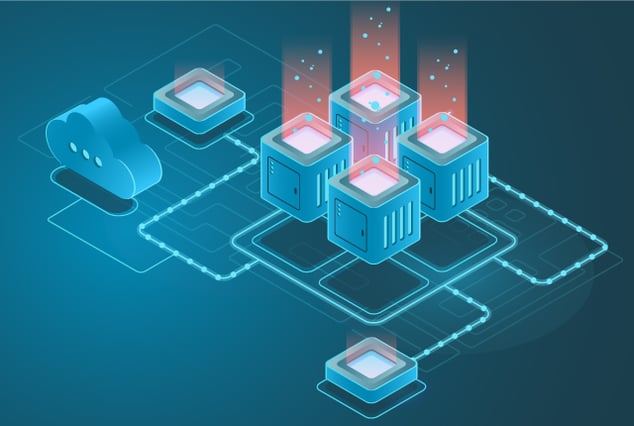
Database security is imperative for any organization that wishes to have a robust defense against any malicious attacks that may cause a setback in their operations and put their stakeholders at risk.
A database breach can not only undermine a company’s integrity but also cause a massive loss of profits and have long-term effects.
Below, we will discuss what is database protection and why it is important as well as common database security threats and vulnerabilities. We will also give you tips on how to implement database security so you can rest easy that your data is safe at all times.
What Do You Mean By Database Security?
Database security pertains to a variety of measures implemented to secure and protect your organization’s database management system. The protection is not just limited to malicious attacks but also to illegitimate usage.
The scope of the protection does not stop within your database or the data within but also the database management system itself as well as the applications that access it, keeping it safe from damage, misuse, or breach.
Database security covers various tools, methodologies, and software that are responsible for implementing your system’s defense against perpetrators.
Well-thought-out database security ensures that it’s a few steps ahead of the attackers who themselves are always finding ways to undermine and steal a company’s data.
Why Is It Important To Do Database Testing?
Your database is deemed compromised if your system fails to uphold the confidentiality of the data within. The magnitude of the damage done will vary depending on whatever security measures you were able to put up. Here are some key reasons why you should implement a database penetration testing methodology.
-
Protect Intellectual Property
Some of the most critical assets of your organization are your intellectual properties. These proprietary practices, trade secrets, and innovations give you your market advantage. There are breaches that are very hard to recover from and this is one of them.
If your competitive advantage is exposed then that effectively takes the wind out of your operations and can even render a company irrelevant. You must do all that you can to protect such IPs.
-
Boost Brand Reputation
Trust is a foundation in any industry and boosting your database security will, in turn, boost your brand reputation. If your partners think that you are capable of protecting their confidential information then naturally they will continue to do business with you.
A breach can do a lot of damage to said trust and the fallout can be a domino effect leading to massive business loss.
-
Ensure Business Continuity
Once again, the extent of the breach will determine how much of your operation can continue or get paralyzed. There are organizations that are lucky enough to still be operating but some will have to completely put a halt to theirs and only resume if the breach can be recovered from.
-
Avoid Penalties and Fines for Non-Compliance
Your financial problems won’t stop at the efforts executed to recover from the breach but should also include fines and penalties for non-compliance from global organizations like SAO, PCI-DDS, HIPAA, and GDPR.
Fines can be per violation and can cost your business millions of dollars.
-
Avoid Extra Costs of Repairing Breaches and Notifying Customers
Avoid shelling out significant funds to rectify the breach which may include an investigation and going after the perpetrators. Also, you may incur expenses to inform your stakeholders about the breach and assure them that things are under control.
Common Database Security Threats and Vulnerabilities
Database security issues come in multiple forms and knowing them gives you the ability to combat or preempt them and not fall victim to a breach.
-
SQL/NoSQL Injection Attacks
SQL/NoSQL injection attacks involve arbitrary SQL and non-SQL attack strings in database queries. These are queries that are usually included as extensions in web forms or via HTTPS requests.
Regular vulnerability testing and secure coding can help prevent such attacks which can breach any type of database system.
-
Buffer Overflow Attacks
This happens when a certain process writes larger than allowed data to a block of memory. Perpetrators may take advantage of this excess data to launch attacks.
-
Denial of Service (DoS/DDoS attacks)
Denial of service attacks are perhaps some of the most common forms of all ways to breach a database. Using a ton of fake requests, attackers will try and overwhelm your system in hopes of rendering it vulnerable until it fails.
-
Data Manipulation
Data manipulation refers to altering digital documents with malicious intent or through unauthorized access no matter the purpose.
-
Unauthorized Access To Data
A database is breached when someone unauthorized is able to penetrate it and have access to its data.
-
Identity Spoofing
Taking on someone else’s identity to access a database is also one way perpetrators get through. That’s why everyone within the organization should be made fully aware that they are a part of the efforts to combat breaches.
-
Human Error
Human error is perhaps one that can be prevented easily. Password sharing, weak passwords, and just carelessness that leads to data deletion or alteration are database issues caused by human error.
-
Insider Threat
The solution to an inside threat starts upon the hiring of personnel. You need people that have integrity given that they need to handle sensitive and valuable data for the organization and the stakeholders.
An inside threat may leak data for self-interest or carelessly expose them.
-
Exploitation of Database Software Vulnerabilities
New vulnerabilities within your database are discovered daily so you need to ensure that you keep up with what’s needed and patch up your database consistently.
How To Secure Your Database Server
A database can either be a physical or virtual machine and hardening it is a culmination of multiple layers that work together to form an effective defense mechanism.
-
Ensure Physical Security of Your Database
You need to ensure that no one malicious can have physical access to your servers. The best way to go about this is to have an in-house data center, although that could be a bit expensive. Restrict access as much as possible.
-
Ensure Network Access Controls
Make sure that only authorized users and devices can access private networks.
-
Database Software Security
Have tools, controls, and measures ready to protect your database and make sure that the personnel intended to implement them are fully trained and capable.
-
Backup Security
This is always a given when it comes to protecting data. Always double if not triple your security measures because once again, vulnerabilities are discovered daily.
-
Application/Web Server Security
Make sure to train your developers and always scan for web or application server security vulnerabilities. Keeping your software updated and restricting access goes a long way. Check out this blog to learn more about web application security risks.
-
End-User Account/Device Security
Even if passwords are strong, you still need to implement additional end-user security such as restriction of access after three failed password attempts. This ensures that possible breaches are stopped right away.
-
Audit
Lastly, security audits should be done regularly to always make sure that everything is aligned to the organization’s database security goals.
Techniques for Database Security
Here are more techniques on how to better your database security.
-
Penetration Testing
What better way to test your database system for vulnerabilities than by simulating attacks on it? Have your database managers perform analysis and find potential areas for improvements within the system to then reinforce it in the process.
-
SQL Injection Testing
This includes performing a robust check on the user values that are inserted into your database. There are special characters and keywords that should not be allowed in an application.
-
Risk Finding
Security experts who run a secure database service should run risk finding or risk assessments so your organization will have a better perspective of the strength of the security of your database.
-
Password Cracking
Password cracking, as the name implies, involves trying to test the strength of the password of everyone involved in your organization. You must make sure that your system is invulnerable against any password cracking tool used by perpetrators.
Conclusion
A robust database security system is one of the best investments that you can provide for your organization. It’s like having health insurance, it will give you peace of mind that at any point in time that there's a breach in your system, you are sure to be protected or at the very least can minimize any damage.
QASource can help strengthen your company’s system with our wide array of services meant to cater to businesses from any industry. Need to start building a solid foundation for your database security now? Contact us.



